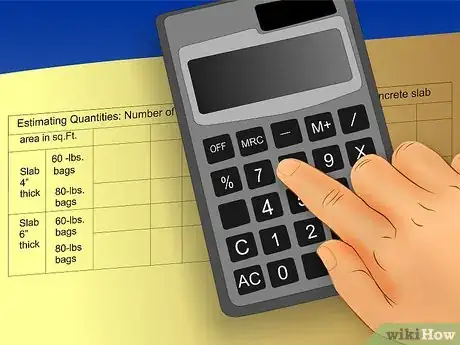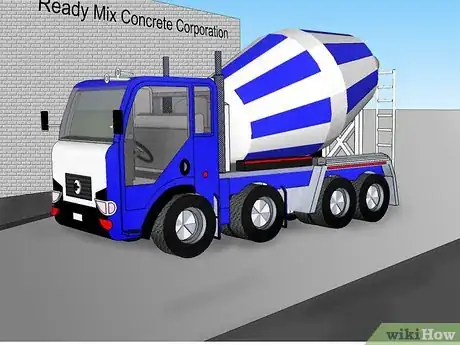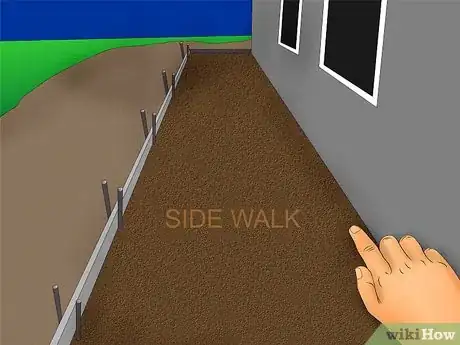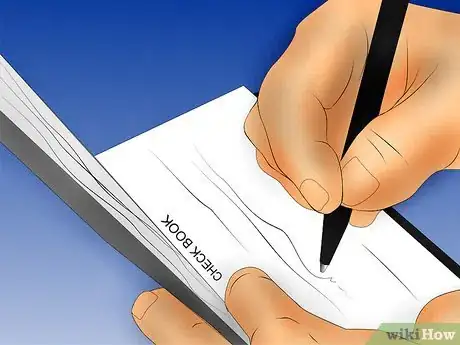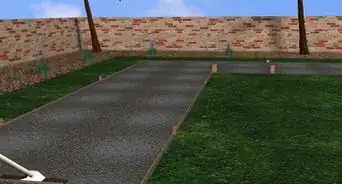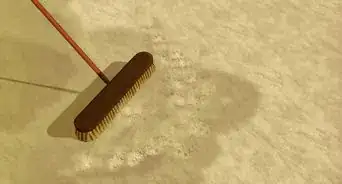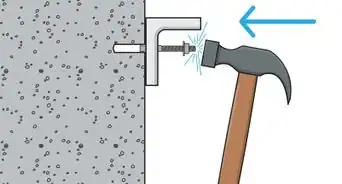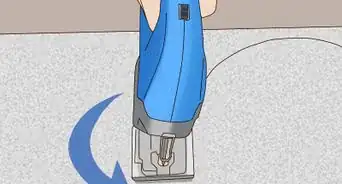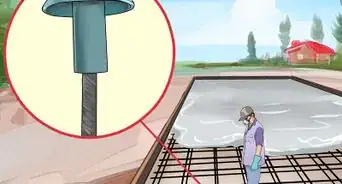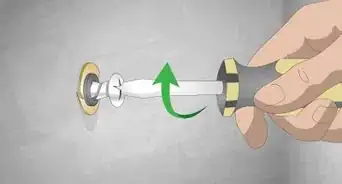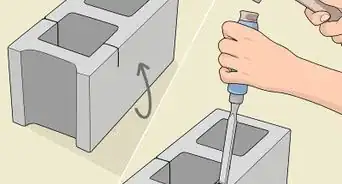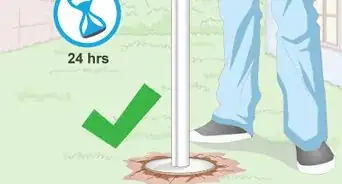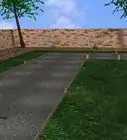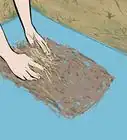X
wikiHow is a “wiki,” similar to Wikipedia, which means that many of our articles are co-written by multiple authors. To create this article, 15 people, some anonymous, worked to edit and improve it over time.
This article has been viewed 226,869 times.
Learn more...
A giant ready-mix concrete truck driving up to your house can be intimidating, but it doesn't have to be if your site is prepared, you have all your tools at hand, and you've ordered the right amount. Dispatchers are quite helpful, but you should know the basics before you call so you don't wind up with more or less than you need.
Steps
-
1Calculate the right volume. In the U.S. Concrete is always ordered in cubic yards. First figure out the cubic footage, then convert to yards by dividing by 27. Here's how: multiply the length of your project times the width times the depth (4 in. = . 33 ft.) and divide the total by 27. Using a sidewalk as an example: 60 feet (18.3 m). (long) x 4 feet (1.2 m). (wide) x .33 feet (0.1 m). (deep) = 79.2 cu. ft. ÷ 27 = 2.93 cu. yards.You can also figure your cubic yards by this example: length, times, width, divided by, 12, times, thickness, divided by, 27. using the figures from above example. 60 feet (18.3 m) ( length ), times 4 feet (1.2 m) (width), divided by 12, times 4 inches (10.2 cm) (thickness), divided by 27 = 2.96 cubic yards. Concrete is cheap and nothing is worse than coming up short (except rain). A good rule of thumb is to order an extra 5 percent rounded up to the next 1⁄4 yard (0.2 m). to handle spillage and uneven bases.[1]
-
2Order from the nearest supplier. Get fresh concrete mixed near the site, not mixed across town by some company with a lower price.[2]Advertisement
-
3Ask for 5 percent “air entrainment” in the mix. Suppliers add a chemical that traps microscopic air bubbles to help the concrete handle the expansion and shrinkage caused by climatic changes such as freezing.[3]
-
4Get the right strength. Tell them you're pouring an exterior sidewalk and they'll recommend the correct “bag mix” (ratio of cement to gravel and sand). In cold climates, they'll probably suggest at least a 3,000-lb. mix. That means concrete that'll handle a 3,000-lb. load per square inch without failing.
-
5Have your checkbook ready. You'll have to pay on delivery after the concrete's unloaded.
Advertisement
Community Q&A
-
QuestionHow much concrete is needed for a driveway that is 16 x 16 feet by 4 inches deep?
 Community Answer16'x16'x4"=3.16 cubic yards. Typically it will take more than you think, I would plan for 3.5 - 4 yard depending on your grading. Also many concrete companies will give you a surcharge if you order less than 4 yards.
Community Answer16'x16'x4"=3.16 cubic yards. Typically it will take more than you think, I would plan for 3.5 - 4 yard depending on your grading. Also many concrete companies will give you a surcharge if you order less than 4 yards. -
QuestionHow much concrete do I need for a12x12x4 inches driveway?
 Community AnswerMultiply those dimensions together and convert it to meters squared which directly converts to liters.
Community AnswerMultiply those dimensions together and convert it to meters squared which directly converts to liters. -
QuestionHow much concrete is needed for a driveway that is 46 by 52 feet?
 Community AnswerThis depends on how thick you want your driveway to be. The minimum thickness should be four inches. Multiply 46' (552") by 52' (624") by 4" and you get 29.5 cubic yards.
Community AnswerThis depends on how thick you want your driveway to be. The minimum thickness should be four inches. Multiply 46' (552") by 52' (624") by 4" and you get 29.5 cubic yards.
Advertisement
References
About This Article
Advertisement
